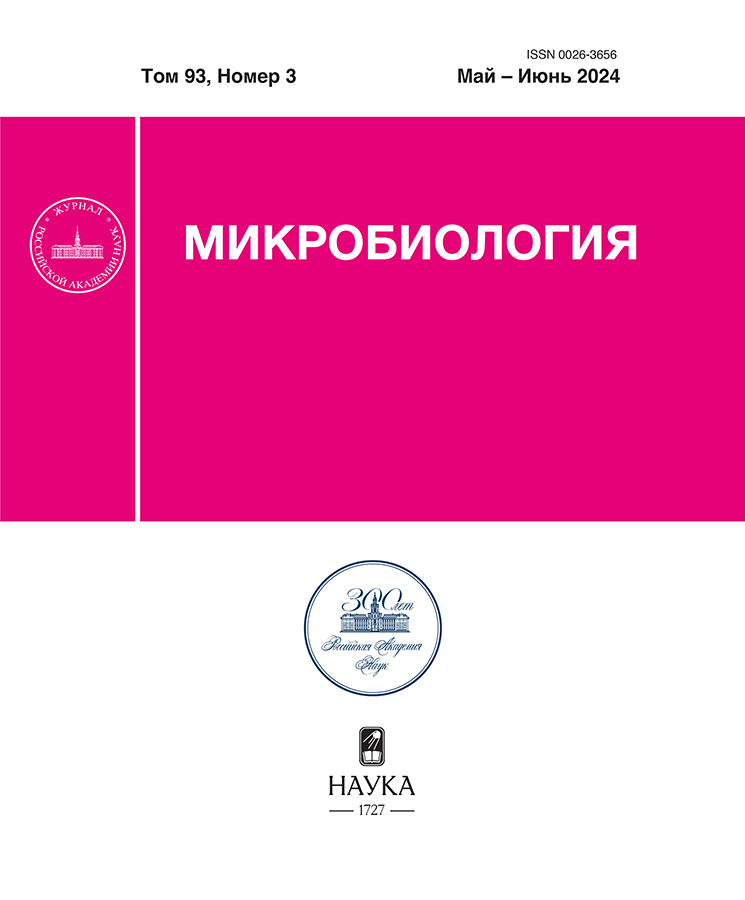Comparative Genome Analysis and Assessment of the Functional Properties of Streptococcus thermophilus Strains
- Authors: Moiseenko K.V.1, Glazunova O.A.1, Savinova O.S.1, Fedorova T.V.1
-
Affiliations:
- Bach Institute of Biochemistry, Research Center of Biotechnology, Russian Academy of Sciences
- Issue: Vol 93, No 3 (2024)
- Pages: 340-345
- Section: SHORT COMMUNICATIONS
- URL: https://kld-journal.fedlab.ru/0026-3656/article/view/655105
- DOI: https://doi.org/10.31857/S0026365624030106
- ID: 655105
Cite item
Abstract
Streptococcus thermophilus are commonly used as starter cultures. Search for new safe strains with desired industrial and probiotic properties is an important issue. Complete genome sequencing was carried out, and the main genome characteristics of two new strains, S. thermophilus 16t (Str16t) and 159 (Str159), were determined. In silico analysis of the genomes revealed the absence of transmissible antibiotic resistance genes, virulence genes associated with pathogenicity, and integrated plasmids; gene clusters encoding class I and class II bacteriocin were found. In vitro tests showed phosphatase, peptidase, β-galactosidase, and esterase activity of both strains, as well as their ability to ferment glucose, lactose, sucrose, and ribose. Strain Str16t metabolized mannose as well. Str16t and Str159 are promising strains for application as starter and probiotic cultures.
Full Text
About the authors
K. V. Moiseenko
Bach Institute of Biochemistry, Research Center of Biotechnology, Russian Academy of Sciences
Email: fedorova_tv@mail.ru
Russian Federation, Moscow
O. A. Glazunova
Bach Institute of Biochemistry, Research Center of Biotechnology, Russian Academy of Sciences
Email: fedorova_tv@mail.ru
Russian Federation, Moscow
O. S. Savinova
Bach Institute of Biochemistry, Research Center of Biotechnology, Russian Academy of Sciences
Email: fedorova_tv@mail.ru
Russian Federation, Moscow
T. V. Fedorova
Bach Institute of Biochemistry, Research Center of Biotechnology, Russian Academy of Sciences
Author for correspondence.
Email: fedorova_tv@mail.ru
Russian Federation, Moscow
References
- Evivie S. E., Li B., Ding X., Meng Y., Yu S., Du J., Xu M., Li W., Jin D., Huo G., Liu F. Complete genome sequence of Streptococcus thermophilus KLDS3.1003, a strain with high antimicrobial potential against foodborne and vaginal pathogens // Front. Microbiol. 2017. V. 8. Art. 1238. https://doi.org/10.3389/fmicb.2017.01238
- Roux E., Nicolas A., Valence F., Siekaniec G., Chuat V., Nicolas J., Le Loir Y., Guédon E. The genomic basis of the Streptococcus thermophilus health-promoting properties // BMC Genomics. 2022. V. 23. Art. 210. https://doi.org/10.1186/s12864-022-08459-y
- Sebastián-Nicolas J.L., Contreras-López E., Ramírez-Godínez J., Cruz-Guerrero A.E., Rodríguez-Serrano G.M., Añorve-Morga J., Jaimez-Ordaz J., Castañeda-Ovando A., Pérez-Escalante E., Ayala-Niño A., González-Olivares L. G. Milk fermentation by Lacticaseibacillus rhamnosus GG and Streptococcus thermophilus SY-102: proteolytic profile and ACE-inhibitory activity // Fermentation. 2021. V. 7. Art. 215. https://doi.org/10.3390/fermentation7040215
- Soltani S., Hammami R., Cotter P. D., Rebuffat S., Ben Said L., Gaudreau H., Bédard F., Biron E., Drider D., Fliss I. Bacteriocins as a new generation of antimicrobials: toxicity aspects and regulations // FEMS Microbiol. Rev. 2021. V. 45. https://doi.org/10.1093/femsre/fuaa039
- Uriot O., Denis S., Junjua M., Roussel Y., Dary-Mourot A., Blanquet-Diot S. Streptococcus thermophilus: from yogurt starter to a new promising probiotic candidate? // J. Funct. Foods. 2017. V. 37. P. 74‒89.
- Vitetta L., Llewellyn H., Oldfield D. Gut dysbiosis and the intestinal microbiome: Streptococcus thermophilus a key probiotic for reducing uremia // Microorganisms. 2019. V. 7. Art. 228. https://doi.org/10.3390/microorganisms7080228
- Zhao R., Chen Z., Liang J., Dou J., Guo F., Xu Z., Wang T. Advances in genetic tools and their application in Streptococcus thermophiles // Foods. 2023. V. 12. Art. 3119. https://doi.org/10.3390/foods12163119
Supplementary files













